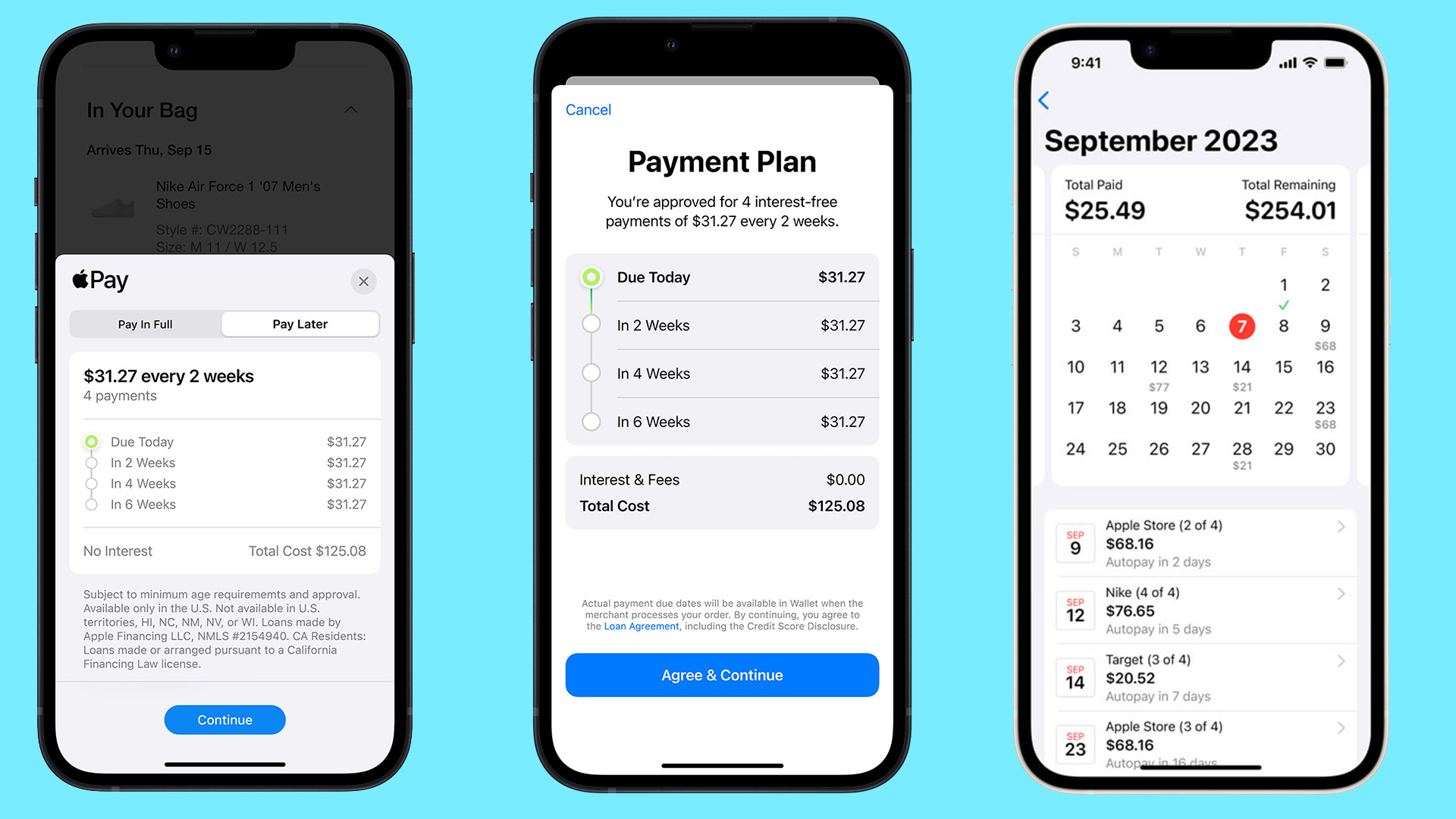Apple Pay Later is finally rolling out for a chosen few across 45 US states
Budget your buys the Apple way

Sign up for breaking news, reviews, opinion, top tech deals, and more.
You are now subscribed
Your newsletter sign-up was successful
After suffering through multiple delays, Apple Pay Later is finally touching down as it begins rolling out to randomly selected users across the United States.
Originally, the service was supposed to launch alongside iOS 16 back in September 2022, but developers ran into a variety of “technical setbacks”. Apple Pay Later allows people to apply for loans from $50 up to $1,000 to purchase whatever they want while avoiding paying the full price up-front. From there, users will pay off that amount in four separate payments across six weeks with no interest or extra fees slapped on top. $1,000 is a decent chunk of change, however, it's not a guarantee. Eligibility depends on your credit score; a history with low numbers will qualify for smaller loans.
The feature will have its home in the Apple Wallet which comes with a detailed calendar that'll notify you of upcoming payments. If you're having a hard time paying, Apple will work with you to make up a new plan. And if you still can't pay off the bill, you won't be eligible for future loans. Customers must connect either a bank or debit card to their account to use the money. Credit cards cannot be used in order to, as Apple notes in its release, “prevent users from taking on more debt to pay back loans”.
Basic requirements
Before applying, you'll need to meet some basic requirements first. Currently, the feature is unavailable in Hawaii, Nevada, New Mexico, North Carolina, and Wisconsin plus all US Territories. Currently, Apple Pay Later is available in 45 states. People living in Hawaii, Nevada, New Mexico, North Carolina, Wisconsin, or any of the US territories do not have access to the feature, at this time. You have to be at least 18 years old (19 if you live in Alabama) and living in a supported state with a valid physical address.
As for hardware, all you need is an iPhone or iPad updated to iOS 16.4 and iPadOS 16.4, respectively, with two-factor authentication enabled.
Once everything is squared away, you can apply through Apple Wallet via an option at the top. Be aware the company will run a “soft credit pull” to see if you’re in a “good financial position” to borrow the money. Those rejected will get an email from Apple explaining why you didn't make the cut.
Money rules
There are some rules regarding how you can spend the loan, however.
Sign up for breaking news, reviews, opinion, top tech deals, and more.
The money will appear on the checkout page of a purchase under the Pay Later option where you’ll have 30 days to use everything. Past that time, you’ll have to reapply all over again. Whatever you get has to be used on one big order as leftover money can't be reused somewhere else. Additionally, the loan will only be accepted by online retailers and apps supporting Apple Pay, but you won't be forced to just buy Apple tech. It'll work for multiple products bought from a single retailer. Apple cannot see the details of that transaction (your purchase of an Xbox Series X and Sonic Colors Ultimate at Target.com will not be judged).
Pay Later is not currently supporting in-physical-store payments.
Apple Pay Later customers won't pay any fees, but Apple will be making some money off this program through its cut of the fees installment payment plan provider, Mastercard, charges retailers.
The company is pretty set on maxing out the loan at $1,000. For more expensive purchases, say a MacBook Pro, Apple recommends using something like the Apple Card to have payments across months instead of weeks. There are plans to expand support to all eligible customers in the US later this fall when Apple Financing, LLC, begins reporting to American credit bureaus. Unfortunately, there are currently no plans for a global launch.
Hopefully, there will be. Until then, check out TechRadar's list of the best iPhone models for 2023 if you're looking for a new device.

Cesar Cadenas has been writing about the tech industry for several years now specializing in consumer electronics, entertainment devices, Windows, and the gaming industry. But he’s also passionate about smartphones, GPUs, and cybersecurity.